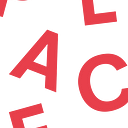Truth, trust and stories
Joe Doran, Lankelly Chase
I read through the Oxford reflection having spent an afternoon with the team there this week talking about the storytelling project they’ve been part of. A question popped up in the chat from another partner that afternoon which has stuck with me. The question, on the subject of the change stories can make, was: If a story achieves a positive outcome and does all the things a good personal story is supposed to do - does it have to be true?
The curtain wasn’t fully pulled back, but it felt that instead of a man sat at some controls, the fragile foundations on which so much of our work relies saw a little bit of light. One aspect of systems change, both the process and the result for they are one and the same, is to reveal the system to itself. The question, to my ears, aimed to do that a little and it was shied away from. Are we ready to face uncomfortable truths over reassuring lies?
One of the reasons I went to the storytelling session is that I’m not really into stories. I understand their value, I see how they can personalise and de-intellectualise the endeavours we’re all engaged in. But they don’t do anything for me, and I really need to figure out why. It might be that stories are statements, not discussions. They do not reflect the messy interconnected and undiagnosed splat of lives and relationships in which we live.
A blog is not a discussion either, and blogs do nothing for me. I hate reading them and hate writing them even more. They’re ultra-filtered extra-censored cherry-picked adverts. Even sensitively written ones that speak to uncertainty are finely tuned opinion pieces. There’s a falseness about blogs that makes them stand in stark contrast to the way we see the world. I am 100% complicit in this — now and at other times.
Writing that has been quite difficult. Partly because it’s honest and honesty is hard. Although I’m a bit of a knob, I’m not a monster — I don’t want to hurt anyone’s feelings.
Essentially, the question that was asked has made me think a lot about honesty. Whether it’s important? How to spot it. How honest I am and how honest I should be. Whether ends justify means. Which then links to trust. There are some people I know to be dishonest that I trust and I am okay with that. Which then linked me back to what Carrina wrote about the importance of getting to know each other. Trust takes ages to develop and can get shattered in seconds.
I know I should end on a call to arms. Or the clarification of an important issue. But I’m not calling anyone to do anything. Nor do I have an important point to clarify — that would add to a sense of dishonesty. And although I’m not engaged by stories nor moved by blogs I understand the roles they play. Blogs are the stories that do a job but aren’t quite true.
